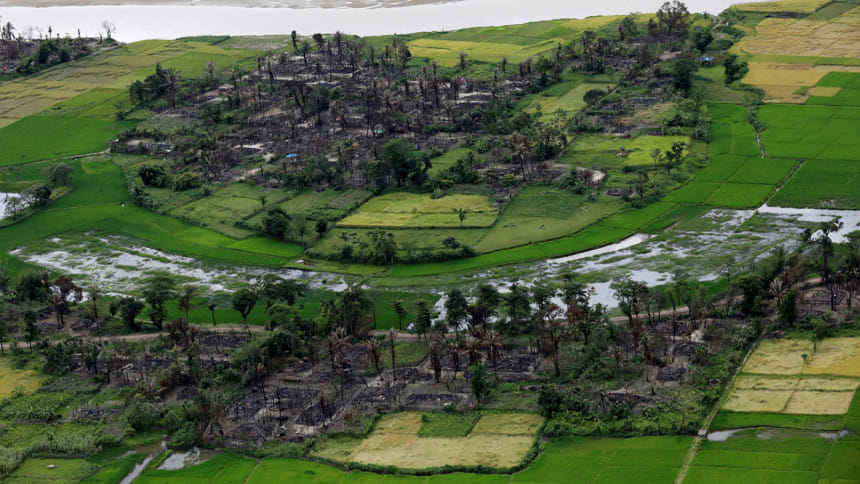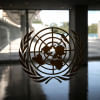Rohingya people fear UN failed them

UN leadership in Myanmar tried to stop the Rohingya rights issue from being raised with the government, according to a report published in the BBC that cited sources in the UN and the aid community.
An ex-UN official said the head of the UN in Myanmar tried to avert human rights advocates from visiting sensitive Rohingya areas, BBC published a report written by Jonah Fisher from Yangon in the country.
In the wake of the violence that recently broke out in the Rakhine state of Myanmar, more than 500,000 Rohingya people have fled an offensive by the military, with many now sheltering in camps in Bangladesh.
"The UN in Myanmar strongly disagreed with the BBC findings," the report says.
In the month since Rohingya refugees began flowing into Bangladesh, the UN has been at the forefront of the response. It has delivered aid and made robust statements condemning the Myanmar authorities, reports BBC.
But sources within the UN and the aid community both in Myanmar and outside have told the BBC that, in the four years before the current crisis, the head of the United Nations Country Team (UNCT), a Canadian called Renata Lok-Dessallien:
-tried to stop human rights activists travelling to Rohingya areas
-attempted to shut down public advocacy on the subject
-isolated staff who tried to warn that ethnic cleansing might be on the way.
One aid worker, Caroline Vandenabeele, had seen the warning signs before. She worked in Rwanda in the run-up to the genocide in late 1993 and early 1994 and says when she first arrived in Myanmar she noticed worrying similarities, writes Jonah Fisher.
"I was with a group of expats and Burmese business people talking about Rakhine and Rohingya and one of the Burmese people just said 'we should kill them all as if they are just dogs'. For me, this level of dehumanisation of humans is one sign that you have reached a level of acceptance in society that this is normal," Vandenabeele was quoted as saying.
According to the report Fisher was corresponding with Vandenabeele, who has served in conflict areas such as Afghanistan, Pakistan, Sri Lanka, Rwanda and Nepal for more than a year.
Between 2013 and 2015 she had a crucial job in the UNCT in Myanmar. She was head of office for what is known as the resident co-ordinator, the top UN official in the country, currently Dessallien, reports BBC.
Vandenabeele's job gave her front-row access as the UN grappled with how to respond to rising tensions in Rakhine state.
Back in 2012, clashes between Rohingya Muslims and Rakhine Buddhists left more than 100 dead and more than 100,000 Rohingya Muslims in camps around the state capital, Sittwe, reports BBC.
Since then, there have been periodic flare-ups and, in the past year, the emergence of a Rohingya militant group, reports BBC.
According to BBC, attempts to deliver aid to the Rohingya have been complicated by Rakhine Buddhists who resent the supply of aid for the Rohingya, at times blocking it and even attacking aid vehicles.
It presented a multifaceted emergency for the UN and aid agencies, who needed the co-operation of the government and the Buddhist community to get basic aid to the Rohingya people, BBC reports.
At the same time they knew that speaking up about the human rights and statelessness of the Rohingya would upset many Buddhists.
So the decision was made to focus on a long-term strategy. The UN and the international community prioritised long-term development in Rakhine in the hope that eventually increased prosperity would lead to reduced tensions between the Rohingya and the Buddhists.
Multiple sources in Myanmar's aid community have told the BBC that at high-level UN meetings in Myanmar any question of asking the Burmese authorities to respect the Rohingyas' human rights became almost impossible.
Vandenabeele said it soon became clear to everyone that raising the Rohingyas' problems, or warning of ethnic cleansing in senior UN meetings, was simply not acceptable, reports BBC.
"Well you could do it but it had consequences," she said. "And it had negative consequences, like you were no longer invited to meetings and your travel authorisations were not cleared. Other staff were taken off jobs - and being humiliated in meetings. An atmosphere was created that talking about these issues was simply not on."

 For all latest news, follow The Daily Star's Google News channel.
For all latest news, follow The Daily Star's Google News channel. 








Comments